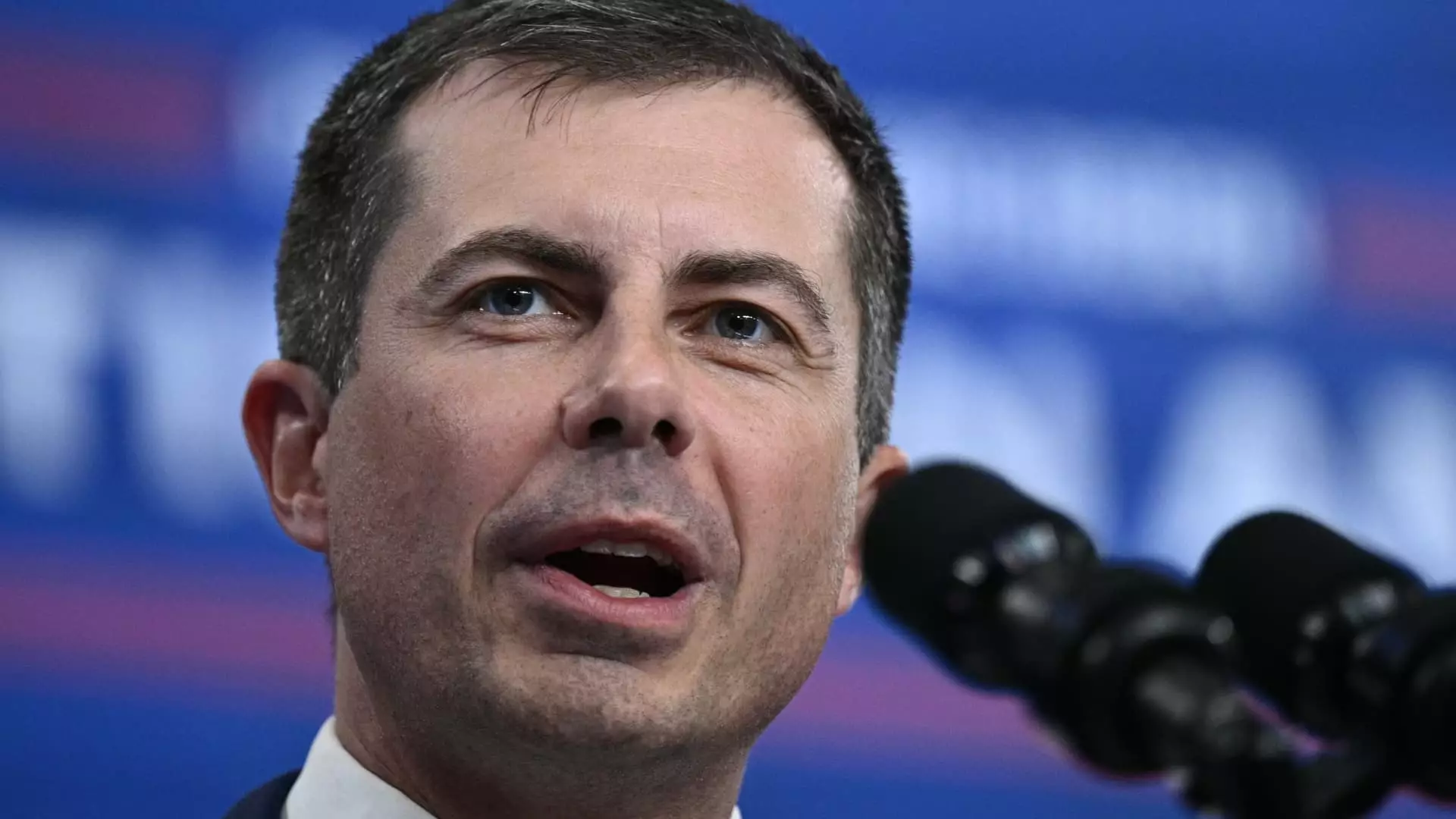In an age dominated by social media, misinformation can spread like wildfire, leading to confusion and distrust among the public. Recently, Transportation Secretary Pete Buttigieg found himself directly addressing Elon Musk on the billionaire’s X platform, attempting to mitigate unfounded claims Musk had made regarding disaster relief efforts for Hurricane Helene victims. This incident raises crucial questions about the responsibilities of influential figures within the realms of both politics and business, as they navigate the treacherous waters of social communication in times of crisis.
In response to Musk’s assertion that the Federal Aviation Administration (FAA) was shutting down airspace in North Carolina and obstructing rescue flights, Buttigieg directly countered these claims, stating, “No one is shutting down the airspace and FAA doesn’t block legitimate rescue and recovery flights.” The consequences of misinformation are particularly severe during natural disasters. When individuals and agencies attempt to mislead the public regarding essential services, it can jeopardize lives during critical moments. The FAAs clarification followed Buttigieg’s remarks, reinforcing that no airspace restrictions were present in the region, emphasizing the importance of accurate information when people are in need.
Moreover, misinformation can lead to a breakdown in public trust in government entities, especially those responsible for emergency management. The decentralized nature of social media means a platform can amplify false narratives quickly, wreaking havoc on communication efforts intended to aid disaster recovery.
Elon Musk’s relationship with politics has evolved significantly in recent years, particularly with his apparent endorsement of former President Donald Trump and his donations to the Republican Party. This involvement has drawn attention not only to Musk’s behavior but to the intersection of corporate influence and political messaging. When Trump, leveraging his own social media platform, echoed Musk’s false claims without comment, it prompted further analysis of how prominent figures can manipulate narratives for political gain. It leads to a disturbing dynamic where public figures with immense reach misuse their platforms, thus impacting public perception and response in critical situations.
The alignment between Musk and Trump has also relevance to their respective business interests. Musk’s enterprises, notably SpaceX, rely heavily on government support and contracts. This raises fundamental questions about accountability and ethics—how can leaders in business and politics align their interests while maintaining transparency and honesty with the public?
Despite his controversial statements, Musk has taken steps to assist those affected by Hurricane Helene, such as providing Starlink satellite internet service and deploying Starlink kits to impacted areas. While this demonstrates a responsive approach to aid, one must wonder whether these actions can absolve him of spreading misinformation. Effective crisis management entails a fine balance between providing timely support and ensuring remarks made during the response are accurate and well-founded.
On the other hand, Buttigieg’s proactive approach in addressing Musk’s claims is commendable. His engagement highlights the need for leaders to counteract false narratives promptly, especially when those narratives threaten to derail critical relief efforts. Government officials must leverage every available channel, including social media, to counter misleading information swiftly—with the understanding that distortions can delay or obstruct recovery efforts.
The incident exemplifies more than a singular dispute between influential figures—it’s a symbolic representation of the larger issue of misinformation in our society. Social media’s ability to magnify inaccuracies poses a unique challenge for leaders, urging a call for more responsible behavior among those with significant platforms. In crisis situations, whether natural disasters or public health emergencies, responsible leadership demands not only action but also clear, accurate communication.
As we navigate further into an era marked by rapid dissemination of information across social platforms, it is crucial that we cultivate a culture of truthfulness, accountability, and empathy in both public and private sectors. The recent exchange highlights the urgent need for all players involved in disaster response—from government officials to corporate leaders—to commit to factual communication and collective responsibility during times of crisis.


Leave a Reply